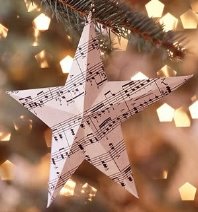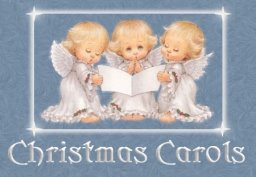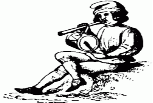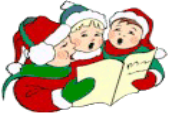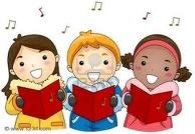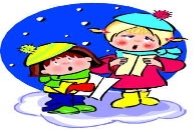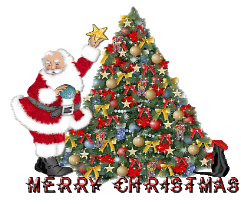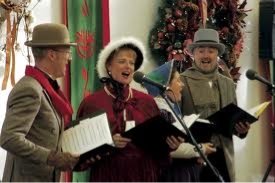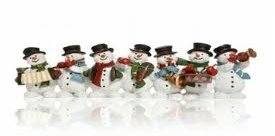Traditional Christmas Songs of English-speaking countries (матеріали до уроку)
Christmas carols are special songs which are sung during the Christmas season. The songs are about Jesus and the time when he was born.
Many Christmas carols were written for a special purpose, often to accompany performances of religious dramas dating from medieval times. In the Middle Ages, carols were dances accompanied by singing. It is thought that these dances were introduced to England from France.
Traditional Christmas Songs of English-speaking countries
(матеріали до уроку)
Вчитель англійської мови
Веселинівської загальноосвітньої школи I – III ступенів
Миколаївської області
Латій Ольга Олександрівна
|
Christmas music comprises a variety of genres of music normally performed or heard around the Christmas season, which tends to begin in the months leading up the actual holiday and end in the weeks shortly thereafter. Music was an early feature of the Christmas season and its celebrations. The earliest chants, litanies, and hymns were Latin works intended for use during the church liturgy, rather than popular songs. The 13th century saw the rise of the carol written in the vernacular under the influence of Francis of Assisi. In the Middle Ages, the English combined circle dances with singing and called them carols. Later, the word carol came to mean a song in which a religious topic is treated in a style that is familiar or festive. From Italy, it passed to France and Germany, and later to England. Christmas carols in English first appear in a 1426 work of John Audelay, a Shropshire priest and poet, who lists twenty five "caroles of Cristemas", probably sung by groups of wassailers, who went from house to house. Music in itself soon became one of the greatest tributes to Christmas, and Christmas music includes some of the noblest compositions of the great musicians.
Many Christmas carols were written for a special purpose, often to accompany performances of religious dramas dating from medieval times. In the Middle Ages, carols were dances accompanied by singing. It is thought that these dances were introduced to England from France. The word carol comes from the ancient Greek 'choros', which means "dancing in a circle," and from the Old French word 'carole', meaning "a song to accompany dancing". Over the years, the word 'carol' changed its meaning, referring only to certain kinds of songs, the word carol became known as Christmas songs. Carol singing, or Caroling, is singing carols in the street or public places. It is one of the oldest customs in Great Britain, going back to the Middle Ages when beggars, seeking food, money, or drink, would wander the streets singing holiday songs. People today still go carol singing. People go from house to house singing carols and collecting money for charity.
The traditional period to sing carols is from St Thomas's Day (21 December) until the morning of Christmas Day. The earliest carol was written in 1410. Sadly only a very small fragment of it still exists. The carol was about Mary and Jesus meeting different people in Bethlehem. Most Carols from this time and the Elizabethan period are untrue stories, very loosely based on the Christmas story, about the holy family and were seen as entertaining rather than religious songs. They were usually sung in homes rather than in churches! Traveling singers or Minstrels started singing these carols and the words were changed for the local people wherever they were traveling. One carols that changed like this is 'I Saw Three Ships'. Christmas carols were banned between 1647 and 1660 in England by Oliver Cromwell, who thought that Christmas should be a solemn day. However, the carols survived as people still sang them in secret. Carols remained mainly unsung until Victorian times, when two men called William Sandys and Davis Gilbert collected lots of old Christmas music from villages in England. The tradition of carol singers going from door to door came about because they were banned from churches in the Middle Ages. Before carol singing in public became popular, there were sometimes official carol singers called 'Waits'. These were bands of people led by important local leaders (such as council leaders) who had the only power in the towns and villages to take money from the public (If others did this, they were sometimes charged as beggars!). They were called 'Waits' because they only sang on Christmas Eve (This was sometimes known as 'watchnight' or 'waitnight' because of the shepherds were watching their sheep when the angels appeared to them.), when the Christmas celebrations began. Also, at this time, many orchestras and choirs were being set up in the cities of England and people wanted Christmas songs to sing, so carols once again became popular. Many new carols, such as 'Good King Wenceslas', were also written. Probably the most famous carol service is 'The Festival of Nine Lessons and Carols' held in King's College Chapel, Cambridge. It takes place on Christmas Eve and always begins with the carol, 'Once in Royal David's City' sung by a solo chorister. White Christmas by Irving Berlin is the biggest-selling Christmas song of all time. It is estimated to have sold approximately 350 million copies on record and sheet music.
SECULAR CAROLS AND SONGS
|
|
|
O Christmas Tree
O Christmas Tree! O Christmas Tree!
Thy leaves are so unchanging;
O Christmas Tree! O Christmas Tree!
Thy leaves are so unchanging;
Not only green when summer's here,
But also when 'tis cold and drear.
O Christmas Tree! O Christmas Tree!
Thy leaves are so unchanging!
O Christmas Tree! O Christmas Tree!
Much pleasure thou can'st give me;
O Christmas Tree! O Christmas Tree!
Much pleasure thou can'st give me;
How often has the Christmas tree
Afforded me the greatest glee!
O Christmas Tree! O Christmas Tree!
Much pleasure thou can'st give me.
O Christmas Tree! O Christmas Tree!
Thy candles shine so brightly!
O Christmas Tree! O Christmas Tree!
Thy candles shine so brightly!
From base to summit, gay and bright,
There's only splendor for the sight.
O Christmas Tree! O Christmas Tree!
Thy candles shine so brightly!
O Christmas Tree! O Christmas Tree!
How richly God has decked thee!
O Christmas Tree! O Christmas Tree!
How richly God has decked thee!
Thou bidst us true and faithful be,
And trust in God unchangingly.
O Christmas Tree! O Christmas Tree!
How richly God has decked thee! !"
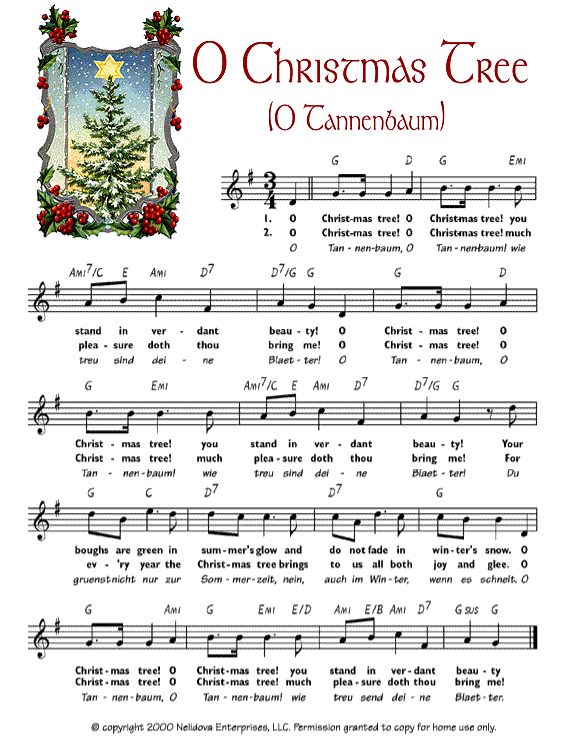
Christmas is Coming
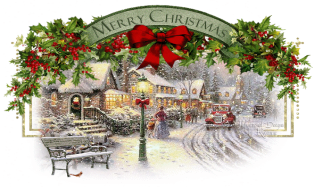
The music to Christmas is Coming was composed by Edith Nesbit Bland in the late nineteenth century. The author of the lyrics is unknown but the popularity of this traditional Christmas song is handed down from generation to generation in the form of a nursery rhyme. The words of Christmas is coming reflects the Christmas festival of celebration of being a time of plenty but that charity should be given to the less fortunate according to the giver's means!
Christmas is Coming
Christmas is coming,
The geese are getting fat,
Please put a penny
In the old man's hat.
If you haven't got a penny,
A ha'penny will do,
If you haven't got a ha'penny,
Then God bless you.
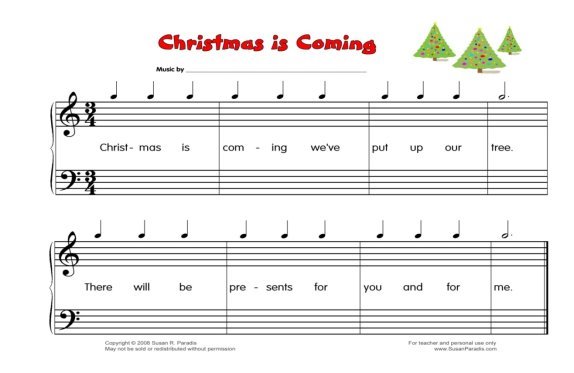
Deck the Halls
|
|
|
|
Deck the Halls
Deck the halls with boughs of holly,
Fa la la la la, la la la la.
Tis the season to be jolly,
Fa la la la la, la la la la.
Don we now our gay apparel,
Fa la la, la la la, la la la.
Troll the ancient Yule tide carol,
Fa la la la la, la la la la.
See the blazing Yule before us,
Fa la la la la, la la la la.
Strike the harp and join the chorus.
Fa la la la la, la la la la.
Follow me in merry measure,
Fa la la la la, la la la la.
While I tell of Yule tide treasure,
Fa la la la la, la la la la.
Fast away the old year passes,
Fa la la la la, la la la la.
Hail the new, ye lads and lasses,
Fa la la la la, la la la la.
Sing we joyous, all together,
Fa la la la la, la la la la.
Heedless of the wind and weather,
Fa la la la la, la la la la.
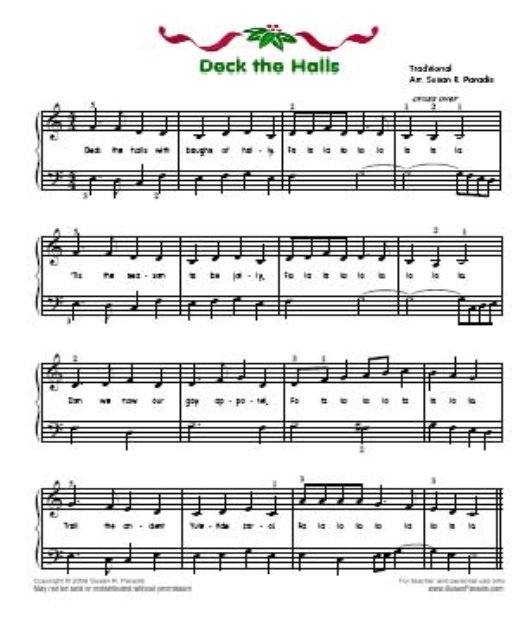
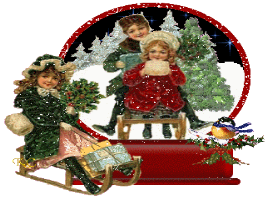
Joy to the World
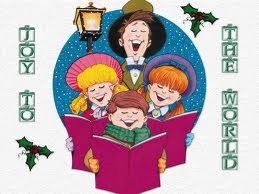 The words and lyrics of the old Christmas carol 'Joy to the World' were written in 1719 by Isaac Watts (1674-1748). Joy to the World is a popular Christmas carol which is based on Psalm 98 in the Bible. The father of John Watts was a Non-conformist and so extreme were his views that he was imprisoned twice. His father's influence over Isaac was demonstrated when he choose to attend Nonconformist Academy at Stoke Newington in preference to a University. Watts was ordained as a Pastor of an Independent congregation. He wrote many hymns and Carols and was awarded a Doctor of Divinity degree by the University of Edinburgh in 1728. The music to the carol is by George Frederick Handel (1685-1759). Click the following link for Christmas sheet music.
The words and lyrics of the old Christmas carol 'Joy to the World' were written in 1719 by Isaac Watts (1674-1748). Joy to the World is a popular Christmas carol which is based on Psalm 98 in the Bible. The father of John Watts was a Non-conformist and so extreme were his views that he was imprisoned twice. His father's influence over Isaac was demonstrated when he choose to attend Nonconformist Academy at Stoke Newington in preference to a University. Watts was ordained as a Pastor of an Independent congregation. He wrote many hymns and Carols and was awarded a Doctor of Divinity degree by the University of Edinburgh in 1728. The music to the carol is by George Frederick Handel (1685-1759). Click the following link for Christmas sheet music.
Joy to the World
Joy to the world, the Lord is come!
Let earth receive her King;
Let every heart prepare Him room,
And Heaven and nature sing,
And Heaven and nature sing,
And Heaven, and Heaven, and nature sing.
Joy to the world, the Savior reigns!
Let men their songs employ;
While fields and floods, rocks, hills and plains
Repeat the sounding joy,
Repeat the sounding joy,
Repeat, repeat, the sounding joy.
No more let sins and sorrows grow,
Nor thorns infest the ground;
He comes to make His blessings flow
Far as the curse is found,
Far as the curse is found,
Far as, far as, the curse is found.
He rules the world with truth and grace,
And makes the nations prove
The glories of His righteousness,
And wonders of His love,
And wonders of His love,
And wonders, wonders, of His love.
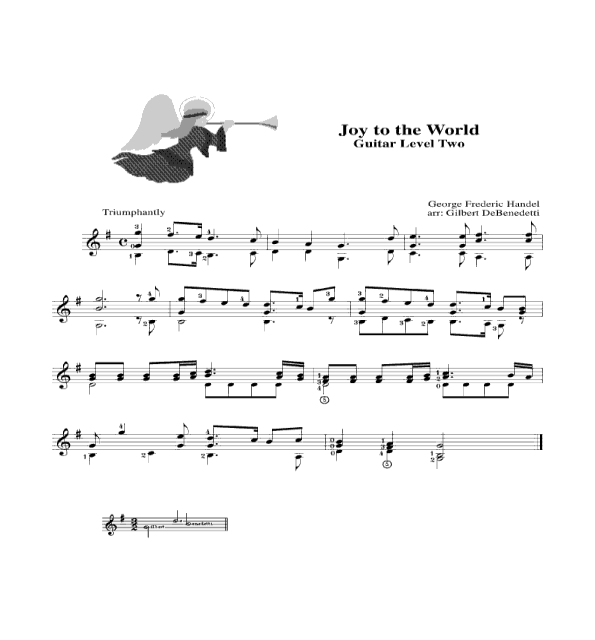
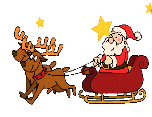
Jingle Bells
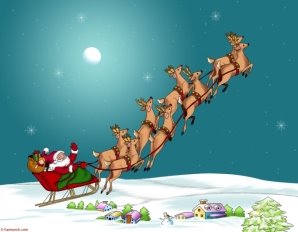 Believe it or not Jingle Bells, one of the most famous American Christmas songs, was originally written for Thanksgiving! The author and composer of Jingle Bells was a minister called James Pierpoint who composed the song in 1857 for children celebrating his Boston Sunday School Thanksgiving. The song was so popular that it was repeated at Christmas, and indeed Jingle Bells has been reprised ever since. The essence of a traditional Christmas is captured in the lyrics of Jingle Bells and the sound effects using the bells have become synonymous with the arrival of Father Christmas or Santa Claus to the delight of children of all ages!
Believe it or not Jingle Bells, one of the most famous American Christmas songs, was originally written for Thanksgiving! The author and composer of Jingle Bells was a minister called James Pierpoint who composed the song in 1857 for children celebrating his Boston Sunday School Thanksgiving. The song was so popular that it was repeated at Christmas, and indeed Jingle Bells has been reprised ever since. The essence of a traditional Christmas is captured in the lyrics of Jingle Bells and the sound effects using the bells have become synonymous with the arrival of Father Christmas or Santa Claus to the delight of children of all ages!

Jingle Bells
Dashing through the snow
In a one horse open sleigh
O'er the fields we go
Laughing all the way
Bells on bob tails ring
Making spirits bright
What fun it is to laugh and sing
A sleighing song tonight
Oh, jingle bells, jingle bells
Jingle all the way
Oh, what fun it is to ride
In a one horse open sleigh
Jingle bells, jingle bells
Jingle all the way
Oh, what fun it is to ride
In a one horse open sleigh
A day or two ago
I thought I'd take a ride
And soon Miss Fanny Bright
Was seated by my side
The horse was lean and lank
Misfortune seemed his lot
We got into a drifted bank
And then we got upsot
Oh, jingle bells, jingle bells
Jingle all the way
Oh, what fun it is to ride
In a one horse open sleigh
Jingle bells, jingle bells
Jingle all the way
Oh, what fun it is to ride
In a one horse open sleigh yeah
Jingle bells, jingle bells
Jingle all the way
Oh, what fun it is to ride
In a one horse open sleigh
Jingle bells, jingle bells
Jingle all the way
Oh, what fun it is to ride
In a one horse open sleigh
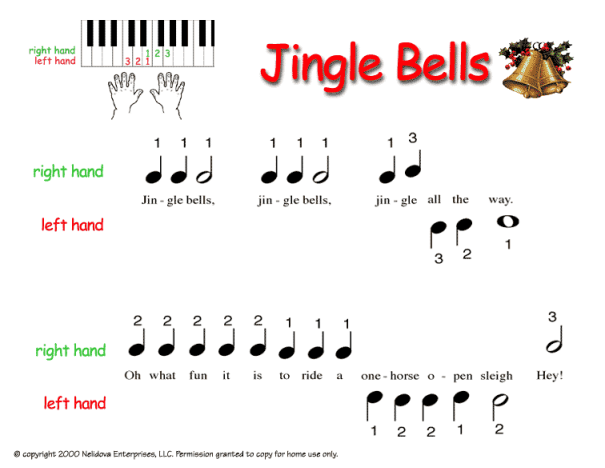
Rudolph the Red Nosed Reindeer
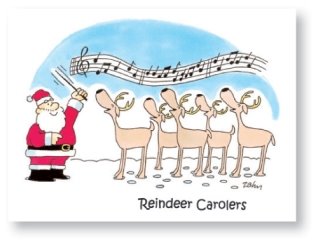 “The famous Christmas song Rudolph the Red-Nosed Reindeer started life as a poem created by an American advertising executive called Robert May. He was requested to produce a poem that could be given away to children by the Santa Claus employed by Department Stores at Christmas! Working as an Advertising Executive Robert May had a natural flair with words and was able to compose the Rudolph the red-nosed reindeer poem which was specifically designed to appeal to children. This marketing ploy was a massive success and approximately 2.5 million Rudolph, the red-nosed reindeer poems were given away in the first year of its publication! In 1949 the singer Gene Autry recorded a musical version of Rudolph the Red-Nosed Reindeer composed by Johnny Marks.
“The famous Christmas song Rudolph the Red-Nosed Reindeer started life as a poem created by an American advertising executive called Robert May. He was requested to produce a poem that could be given away to children by the Santa Claus employed by Department Stores at Christmas! Working as an Advertising Executive Robert May had a natural flair with words and was able to compose the Rudolph the red-nosed reindeer poem which was specifically designed to appeal to children. This marketing ploy was a massive success and approximately 2.5 million Rudolph, the red-nosed reindeer poems were given away in the first year of its publication! In 1949 the singer Gene Autry recorded a musical version of Rudolph the Red-Nosed Reindeer composed by Johnny Marks.
Rudolph the Red Nosed Reindeer
Rudolph, the red-nosed reindeer
had a very shiny nose.
And if you ever saw him,
you would even say it glows.
All of the other reindeer
used to laugh and call him names.
They never let poor Rudolph
join in any reindeer games.
Then one foggy Christmas Eve
Santa came to say:
"Rudolph with your nose so bright,
won't you guide my sleigh tonight?"
Then all the reindeer loved him
as they shouted out with glee,
Rudolph the red-nosed reindeer,
you'll go down in history!
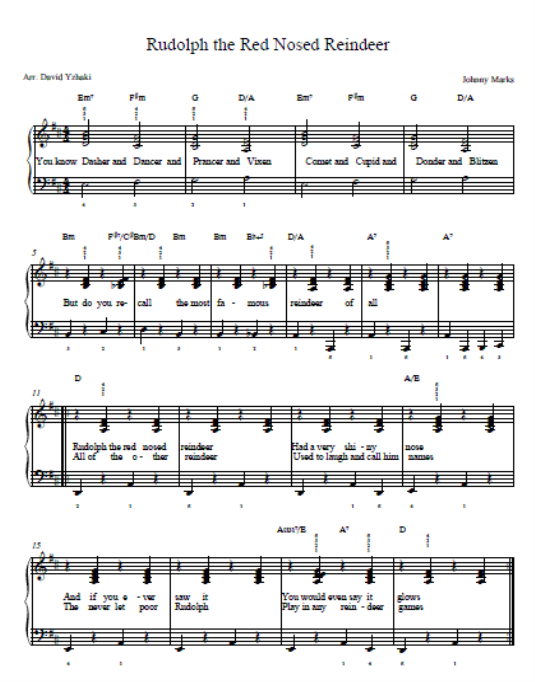

The First Noel
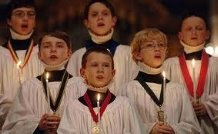 The First Noel is believed to be English in origin in the sixteenth century. It was first published in 1833, in a collection of seasonal carols by William B. Sandys known as 'Christmas Carols Ancient and Modern'.
The First Noel is believed to be English in origin in the sixteenth century. It was first published in 1833, in a collection of seasonal carols by William B. Sandys known as 'Christmas Carols Ancient and Modern'.
The First Noel
The first Noel the angel did say
Was to certain poor shepherds in fields as they lay;
In fields as they lay, keeping their sheep,
On a cold winter's night that was so deep.
Noel, Noel, Noel, Noel, Born is the King of Israel.
They looked up and saw a star
Shining in the east beyond them far,
And to the earth it gave great light,
And so it continued both day and night. Refrain
And by the light of that same star
Three wise men came from country far;
To seek for a king was their intent,
And to follow the star wherever it went. Refrain
This star drew nigh to the northwest,
O'er Bethlehem it took it rest,
And there it did both stop and stay
Right over the place where Jesus lay. Refrain
Then entered in those wise men three
Full reverently upon their knee,
And offered there in his presence
Their gold, and myrrh, and frakincense. Refrain
Then let us all with one accord
Sing praises to our heavenly Lord;
That hath made heaven and earth of naught,
And with his blood mankind hath bought. Refrain
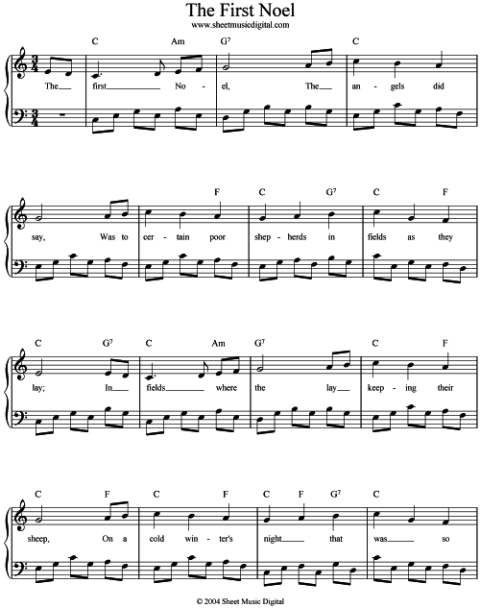
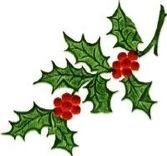
|
|
The twelve Days of Christmas
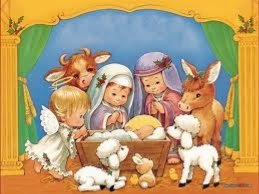 The 12 Days of Christmas mentioned in the following carol starts with Christmas Day on 25th December and concludes with the Epiphany eve on 5th January. Though they were observed first by the English in the sixteenth century, the music of the carol is said to be French. It was first published in 1780 and all the symbols mentioned in the lyrics have a special religious significance.
The 12 Days of Christmas mentioned in the following carol starts with Christmas Day on 25th December and concludes with the Epiphany eve on 5th January. Though they were observed first by the English in the sixteenth century, the music of the carol is said to be French. It was first published in 1780 and all the symbols mentioned in the lyrics have a special religious significance.
The twelve Days of Christmas
On the first day of Christmas,
My true love sent to me
A partridge in a pear tree.
On the second day of Christmas,
My true love sent to me
Two turtle doves,
And a partridge in a pear tree.
On the third day of Christmas,
My true love sent to me
Three French hens,
Two turtle doves,
And a partridge in a pear tree.
On the fourth day of Christmas,
My true love sent to me
Four calling birds,
Three French hens,
Two turtle doves,
And a partridge in a pear tree.
On the fifth day of Christmas,
My true love sent to me
Five golden rings,
Four calling birds,
Three French hens,
Two turtle doves,
And a partridge in a pear tree.
On the sixth day of Christmas,
My true love sent to me
Six geese a-laying,
Five golden rings,
Four calling birds,
Three French hens,
Two turtle doves,
And a partridge in a pear tree.
On the seventh day of Christmas,
My true love sent to me
Seven swans a-swimming,
Six geese a-laying,
Five golden rings,
Four calling birds,
Three French hens,
Two turtle doves,
And a partridge in a pear tree.
On the eighth day of Christmas,
My true love sent to me
Eight maids a-milking,
Seven swans a-swimming,
Six geese a-laying,
Five golden rings,
Four calling birds,
Three French hens,
Two turtle doves,
And a partridge in a pear tree.
On the ninth day of Christmas,
My true love sent to me
Nine ladies dancing,
Eight maids a-milking,
Seven swans a-swimming,
Six geese a-laying,
Five golden rings,
Four calling birds,
Three French hens,
Two turtle doves,
And a partridge in a pear tree.
On the tenth day of Christmas,
My true love sent to me
Ten lords a-leaping,
Nine ladies dancing,
Eight maids a-milking,
Seven swans a-swimming,
Six geese a-laying,
Five golden rings,
Four calling birds,
Three French hens,
Two turtle doves,
And a partridge in a pear tree.
On the eleventh day of Christmas,
My true love sent to me
Eleven pipers piping,
Ten lords a-leaping,
Nine ladies dancing,
Eight maids a-milking,
Seven swans a-swimming,
Six geese a-laying,
Five golden rings,
Four calling birds,
Three French hens,
Two turtle doves,
And a partridge in a pear tree.
On the twelfth day of Christmas,
My true love sent to me
Twelve drummers drumming,
Eleven pipers piping,
Ten lords a-leaping,
Nine ladies dancing,
Eight maids a-milking,
Seven swans a-swimming,
Six geese a-laying,
Five golden rings,
Four calling birds,
Three French hens,
Two turtle doves,
And a partridge in a pear tree!
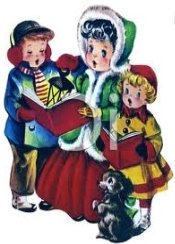
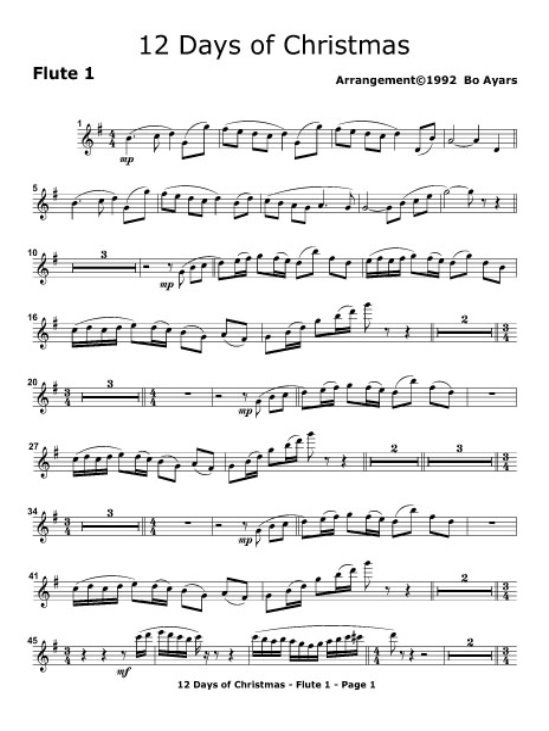
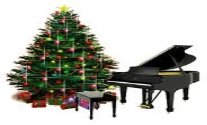
The Holly and The Ivy
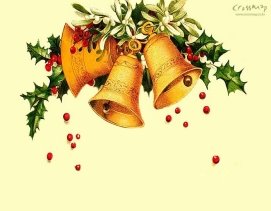 Dating back to almost 1000 years, 'The Holly and the Ivy', is believed to have Pagan origins. Its author and composer are unknown but Cecil Sharp first published its modern version that we find today. It is a wonder how this carol survived for such long time especially during the strong protests and agitations against everything pagan during the 17th century. Both Holly and Ivy are hardy plants and can survive very difficult situations too. Thus, they are considered as symbols of hope and longevity and it is believed to bring good luck for the family if one takes them inside home during the winter. The colors of these plants, their green leaves, white flowers and red berries are all associated with Christmas for long.
Dating back to almost 1000 years, 'The Holly and the Ivy', is believed to have Pagan origins. Its author and composer are unknown but Cecil Sharp first published its modern version that we find today. It is a wonder how this carol survived for such long time especially during the strong protests and agitations against everything pagan during the 17th century. Both Holly and Ivy are hardy plants and can survive very difficult situations too. Thus, they are considered as symbols of hope and longevity and it is believed to bring good luck for the family if one takes them inside home during the winter. The colors of these plants, their green leaves, white flowers and red berries are all associated with Christmas for long.
The Holly and The Ivy
The holly and the ivy,
When they are both full grown,
Of all trees that are in the wood,
The holly bears the crown:
O, the rising of the sun,
And the running of the deer
The playing of the merry organ,
Sweet singing in the choir.
The holly bears a blossom,
As white as lily flow'r,
And Mary bore sweet Jesus Christ,
To be our dear Saviour: Refrain
The holly bears a berry,
As red as any blood,
And Mary bore sweet Jesus Christ,
To do poor sinners good: Refrain
The holly bears a prickle,
As sharp as any thorn,
And Mary bore sweet Jesus Christ,
On Christmas Day in the morn: Refrain
The holly bears a bark,
As bitter as the gall,
And Mary bore sweet Jesus Christ,
For to redeem us all: Refrain
The holly and the ivy,
When they are both full grown,
Of all trees that are in the wood,
The holly bears the crown: Refrain
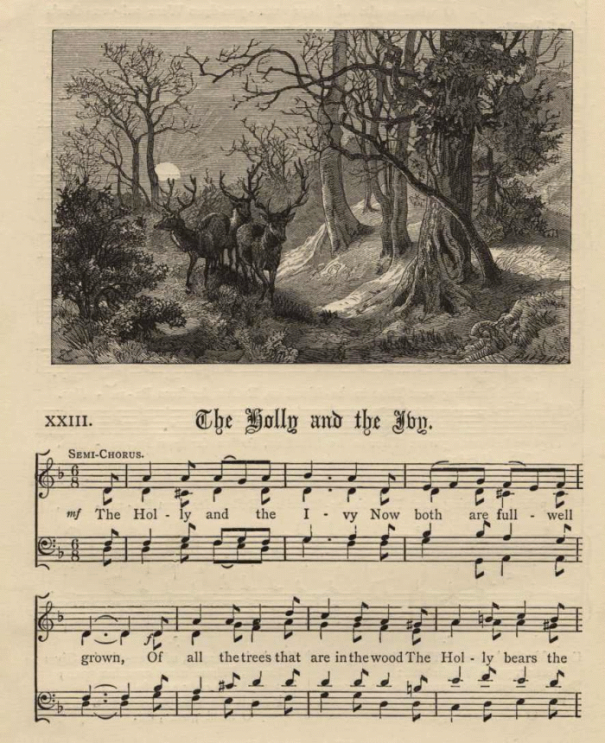
Jolly Old Saint Nicholas
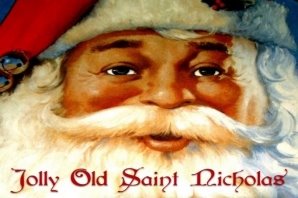 "Jolly Old St. Nicholas" is a Christmas song. Its authorship is often credited to Wilf Carter. However, since the song is mentioned in earlier works (such as Susan Gregg's Christmas Orphans, pub. 1916), this attribution is unlikely. The song has also been credited to Benjamin Hanby, author of "Up on the House Top", at some point in the 1860s, although this too may be in dispute. The song is traditionally performed to an up-tempo arrangement of Johann Pachelbel's "Canon in D Major"
"Jolly Old St. Nicholas" is a Christmas song. Its authorship is often credited to Wilf Carter. However, since the song is mentioned in earlier works (such as Susan Gregg's Christmas Orphans, pub. 1916), this attribution is unlikely. The song has also been credited to Benjamin Hanby, author of "Up on the House Top", at some point in the 1860s, although this too may be in dispute. The song is traditionally performed to an up-tempo arrangement of Johann Pachelbel's "Canon in D Major"
Jolly Old Saint Nicholas
.Jolly Old Saint Nicholas,
Lean your ear this way;
Don't you tell a single soul
What I'm going to say,
Christmas Eve is coming soon;
Now you dear old man,
Whisper what you'll bring to me;
Tell me if you can.
When the clock is striking twelve,
When I'm fast asleep,
Down the chimney broad and black
With your pack you'll creep;
All the stockings you will find
Hanging in a row;
Mine will be the shortest one;
You'll be sure to know. (Or, in some versions: "Mended at the toe").
Johnny wants a pair of skates;
Susy wants a dolly;
Nellie wants a story book--
She thinks dolls are folly;
As for me, my little brain
Isn't very bright;
Choose for me, old Santa Claus,
What you think is right.
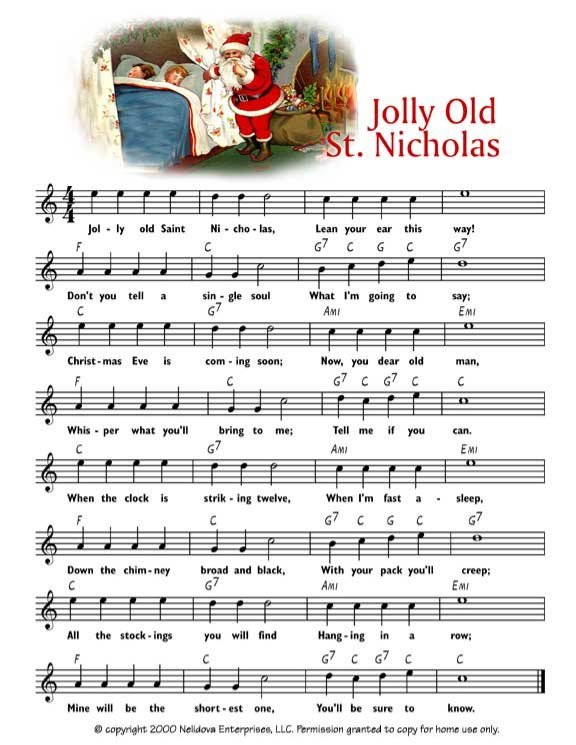
We Wish You a Merry Christmas
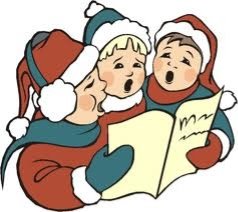 The author and composer of We Wish You a Merry Christmas cannot be traced however it is believed to date back to England in the sixteenth century. The tradition of carollers being given Christmas treats for singing to wealthy members of the community is reflected in this Christmas song - We Wish You a Merry Christmas! Over the years the fashion for figgy puddings mentioned in We Wish You a Merry Christmas has faded. But for the curious, the recipe consisted of the most important ingredient which was of course figs together with butter, sugar, eggs ,milk, rum, apple, lemon and orange peel, nuts, cinnamon, cloves and ginger! Not dissimilar to the modern day Christmas Puddings!
The author and composer of We Wish You a Merry Christmas cannot be traced however it is believed to date back to England in the sixteenth century. The tradition of carollers being given Christmas treats for singing to wealthy members of the community is reflected in this Christmas song - We Wish You a Merry Christmas! Over the years the fashion for figgy puddings mentioned in We Wish You a Merry Christmas has faded. But for the curious, the recipe consisted of the most important ingredient which was of course figs together with butter, sugar, eggs ,milk, rum, apple, lemon and orange peel, nuts, cinnamon, cloves and ginger! Not dissimilar to the modern day Christmas Puddings!
We Wish You a Merry Christmas
We wish you a Merry Christmas;
We wish you a Merry Christmas;
We wish you a Merry Christmas and a Happy New Year.
Good tidings we bring to you and your kin;
Good tidings for Christmas and a Happy New Year.
Oh, bring us a figgy pudding;
Oh, bring us a figgy pudding;
Oh, bring us a figgy pudding and a cup of good cheer
We won't go until we get some;
We won't go until we get some;
We won't go until we get some, so bring some out here
We wish you a Merry Christmas;
We wish you a Merry Christmas;
We wish you a Merry Christmas and a Happy New Year.
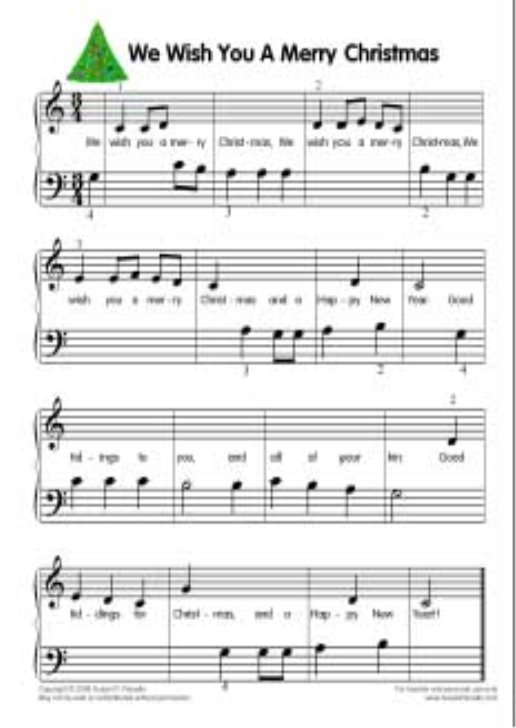
I Saw Three Ships
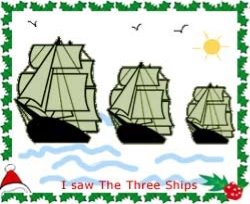
The origin, author and composer of the carol 'I saw three ships' are unknown but the imagery of three ships is considered to be positive, optimistic and sign of good luck. Some experts place this carol in England from the Victorian era. The repetitive chorus lines make it more melodious to listen and easy to remember.
I Saw Three Ships
I saw three ships come sailing by
On Christmas Day, on Christmas Day.
I saw three ships come sailing by
On Christmas Day in the morning.
And what was in those ships all three
On Christmas Day, on Christmas Day?
And what was in those ships all three
On Christmas Day in the morning?
The Virgin Mary and Christ were there
On Christmas Day, on Christmas Day.
The virgin Mary and Christ were there
On Christmas Day in the morning.
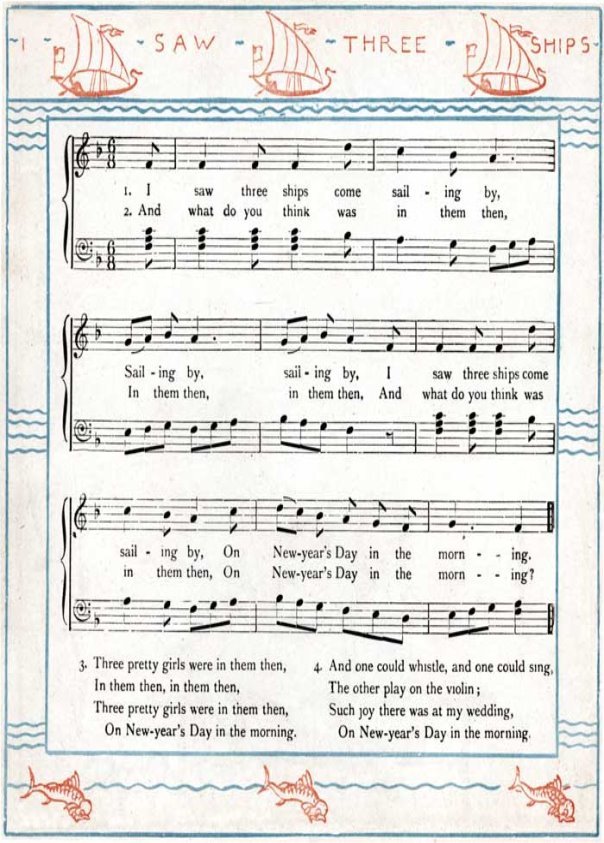


про публікацію авторської розробки
Додати розробку

